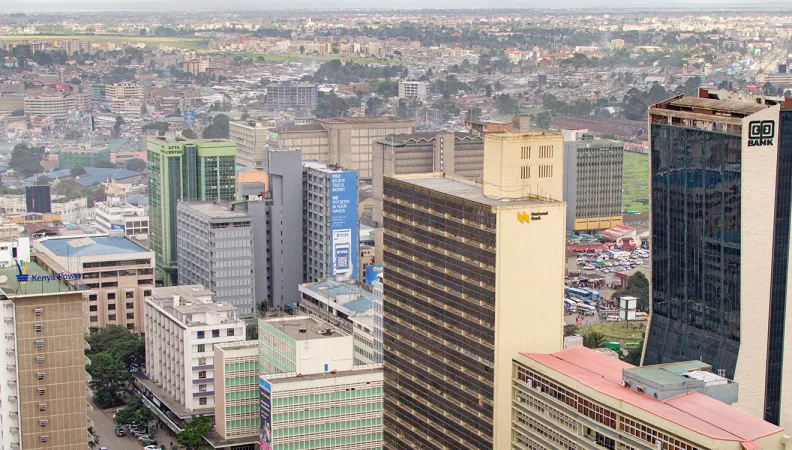Share the page
African Public Development Banks: Essential Actors in Times of Crisis
Published on

Discussion at this week’s Finance in Common Summit and research conference has turned to African development banks and the role they can play in helping economies withstand external economic shocks and emerge from crises. A recent study of the more than 100 banks operating in West Africa has found that PDBs could make meaningful contributions across the continent, bolstering economies not only in the aftermath of crises such as the continuing Covid pandemic, but long term.
African Public Development Banks Crucial in Crises
The Covid pandemic and the war in Ukraine have brought to the surface the economic vulnerability underlying numerous African economies. Their dependence on commodities has exposed them to price shocks that have rocked world markets in recent months, and a lack of tools – or “mitigating instruments,” such as insurance or credit – has made the economic situation across the continent even more tenuous.
Read more: Public Development Banks: Policy Tips for Decision-Makers
This week’s research conference preceding the FICS summit delved into what more could be done by African development banks to facilitate countries’ emergence from the growing financial malaise stemming in part from the Covid pandemic.
It’s an issue that was recently tackled in depth in a paper by Florian Léon, researcher at the Foundation for studies and Research on International Development. The study, “Public bank lending in Africa in times of crisis,” examines the activities of public banks operating in eight West African countries over the period 2000–2019.
Continuing to invest - even in tough times
Having reviewed the data concerning 112 banks, including 24 public banks, which play an important role in Mali, Togo and Niger, Léon found that public and private banks behaved similarly during a crisis, reducing somewhat their activity. But whereas that reduction in activity deepens after a crisis in the private banking sector, public banks tend to maintain their lending activities, a trend that is more pronounced among banks in which the majority of their capital is owned by the State.
“The role of public development banks is important because they provide liquidity to firms after a crisis, while private banks have to restrict their lending to restore their financial health and absorb losses,” says Florian Léon. And yet, it’s precisely in the aftermath of a crisis that support is required. “Access to funds during a recovery is crucial to quickly erase the effects of the shock.”
These findings are particularly resonant now, as countries attempt to cope with the wide-ranging ramifications of the pandemic. Some countries, particularly in Africa and Asia, will need more support, and public development banks are well placed to provide it, particularly in the form of loans to small and medium-sized companies to stimulate economic activity.
A number of reasons could explain why PDBs continue to lend in the wake of a crisis:
- Their mandate: Public banks invariably have a mandate to stabilize economic activity and will often increase their credit lines in times of recession even if this implies taking greater risk
- Relative Stability: Public banks’ resources are generally more stable because they benefit from a state guarantee and can rely primarily on their own resources or on debt raised in the financial markets
- Their role: Public bank loans are primarily oriented towards long-term corporate loans
- Political Context: Public banks’ lending is sometimes less sensitive to macroeconomic evolution than by political calendars; lending decisions can be politically motivated and expansionist as political leaders try to stimulate economic activity
Public development banks are potentially crucial actors across Africa, given the continent’s exposure to external shocks and its relatively low capacity to mitigate them.
“African States have few tools at their disposal because of the difficulty of mobilizing fiscal resources,” concludes Léon’s study. “Public banks are a useful instrument due to their ability to raise their own resources and their importance in banking financial markets.”
Their importance will become increasingly clear as climate-related crises multiply and outstrip governments’ capacity to address their impact alone. “Public banks have certain advantages, such as their mandate, long-term resources, and their long-term vision,” says Léon.
“They are able to mobilize capital to make the long-term investments required to strengthen economies. Their future role in Africa – and elsewhere – will be to not only help countries cope after shocks occur, but also to reduce structural vulnerabilities.”
